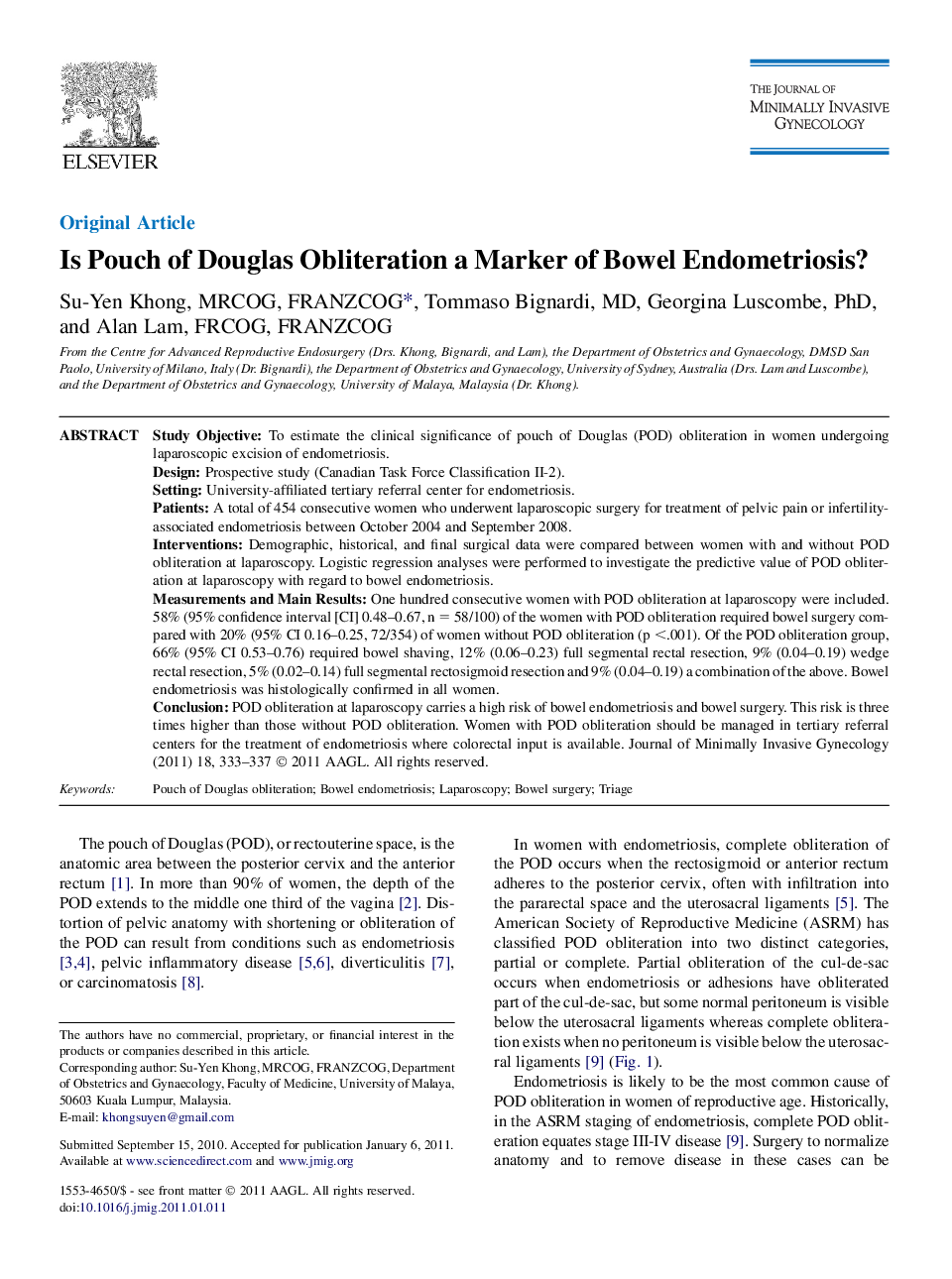| Article ID | Journal | Published Year | Pages | File Type |
|---|---|---|---|---|
| 3962304 | Journal of Minimally Invasive Gynecology | 2011 | 5 Pages |
Study ObjectiveTo estimate the clinical significance of pouch of Douglas (POD) obliteration in women undergoing laparoscopic excision of endometriosis.DesignProspective study (Canadian Task Force Classification II-2).SettingUniversity-affiliated tertiary referral center for endometriosis.PatientsA total of 454 consecutive women who underwent laparoscopic surgery for treatment of pelvic pain or infertility-associated endometriosis between October 2004 and September 2008.InterventionsDemographic, historical, and final surgical data were compared between women with and without POD obliteration at laparoscopy. Logistic regression analyses were performed to investigate the predictive value of POD obliteration at laparoscopy with regard to bowel endometriosis.Measurements and Main ResultsOne hundred consecutive women with POD obliteration at laparoscopy were included. 58% (95% confidence interval [CI] 0.48–0.67, n = 58/100) of the women with POD obliteration required bowel surgery compared with 20% (95% CI 0.16–0.25, 72/354) of women without POD obliteration (p <.001). Of the POD obliteration group, 66% (95% CI 0.53–0.76) required bowel shaving, 12% (0.06–0.23) full segmental rectal resection, 9% (0.04–0.19) wedge rectal resection, 5% (0.02–0.14) full segmental rectosigmoid resection and 9% (0.04–0.19) a combination of the above. Bowel endometriosis was histologically confirmed in all women.ConclusionPOD obliteration at laparoscopy carries a high risk of bowel endometriosis and bowel surgery. This risk is three times higher than those without POD obliteration. Women with POD obliteration should be managed in tertiary referral centers for the treatment of endometriosis where colorectal input is available.
